2-3 Year Recap
Awards
Over the past two years, the Fairmount Water Works Interpretive Center, and interpretive design firm Habithéque, Inc., have been recognized for several prestigious awards for educational programming, innovative exhibitions and visitor-friendly activations. Included among the 2022 awards and nominations are:
- Mid Atlantic Emmy Nomination for WHYY’s Movers & Makers feature on “POOL: A Social History of Segregation”
- Fast Company Innovation by Design Honorable Mention – Social Justice category
- Making an Impact Award (Mid-Atlantic Association of Museums)
- Special Places Award (Pennsylvania Environmental Council)
- Schuylkill River Nominated for PA River of the Year Award
- Diversity in Aquatics (DIA) Lee Pitts Award for Leadership and Organizational Excellence. DIA is a national organization dedicated to increasing water safety and aquatic activities in historically underrepresented and vulnerable communities.
Special Projects & Exhibitions
POOL: A Social History of Segregation
In partnership and with support by The Pew Center for Arts & Heritage, the Philadelphia Water Department, Philadelphia Department of Recreation, Philadelphia Magazine, Habithéque and many other organizations and individuals, POOL: A Social History of Segregation opened on March 22, 2022 (World Water Day) in the Fairmount Water Works’ former natatorium. POOL explores the role of public pools in our communities with the goal of deepening understanding of the connection between water, social justice and public health, and connects the history of segregated swimming in America with multi-disciplinary artworks, storytelling, and place-based learning. In 2022, over 6,000 visitors immersed themselves in the exhibition, which received global, regional and local recognition by both the press and various award nomination committees.
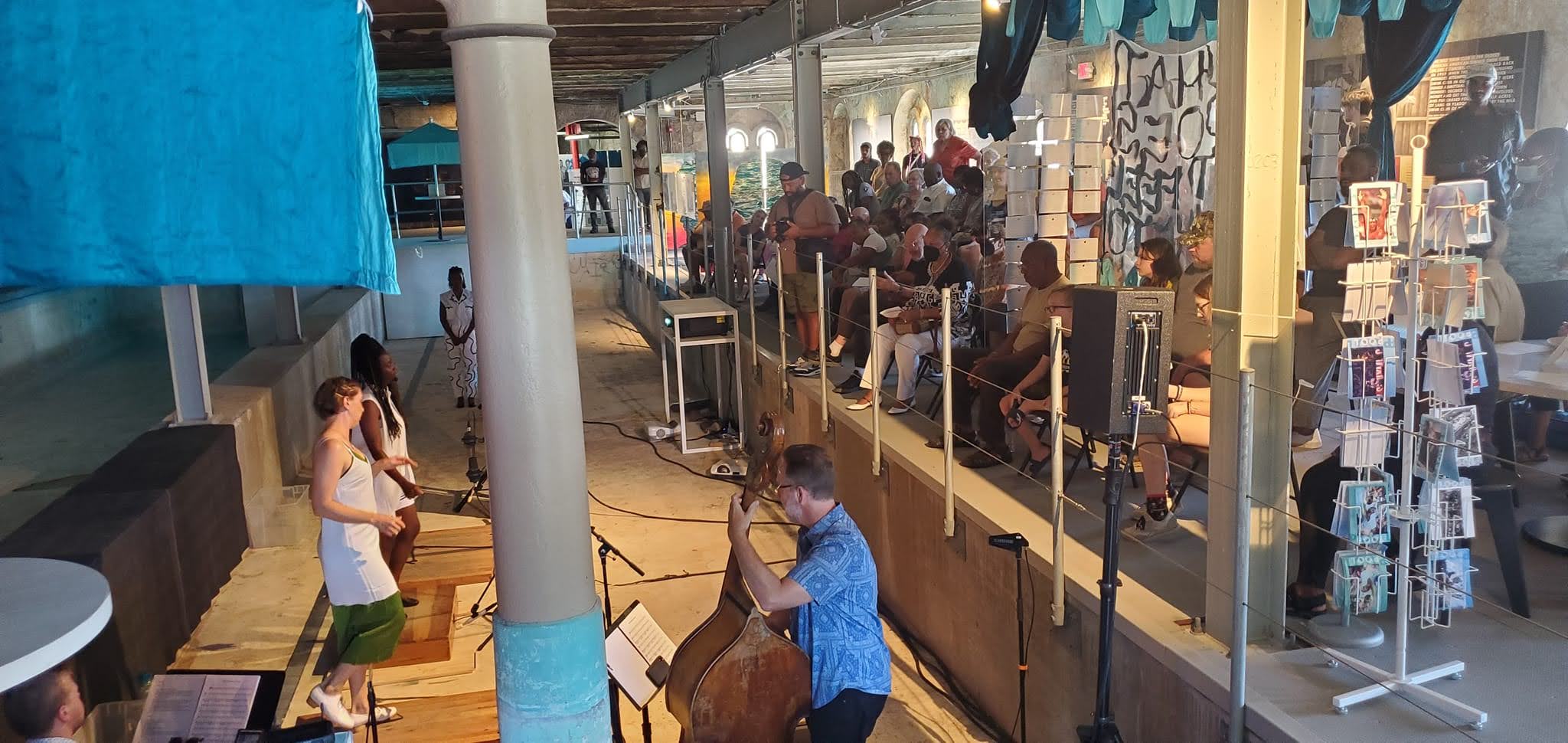
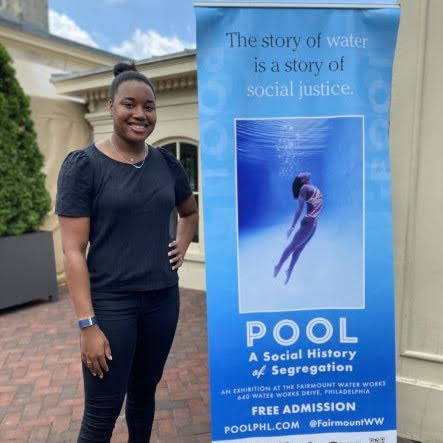
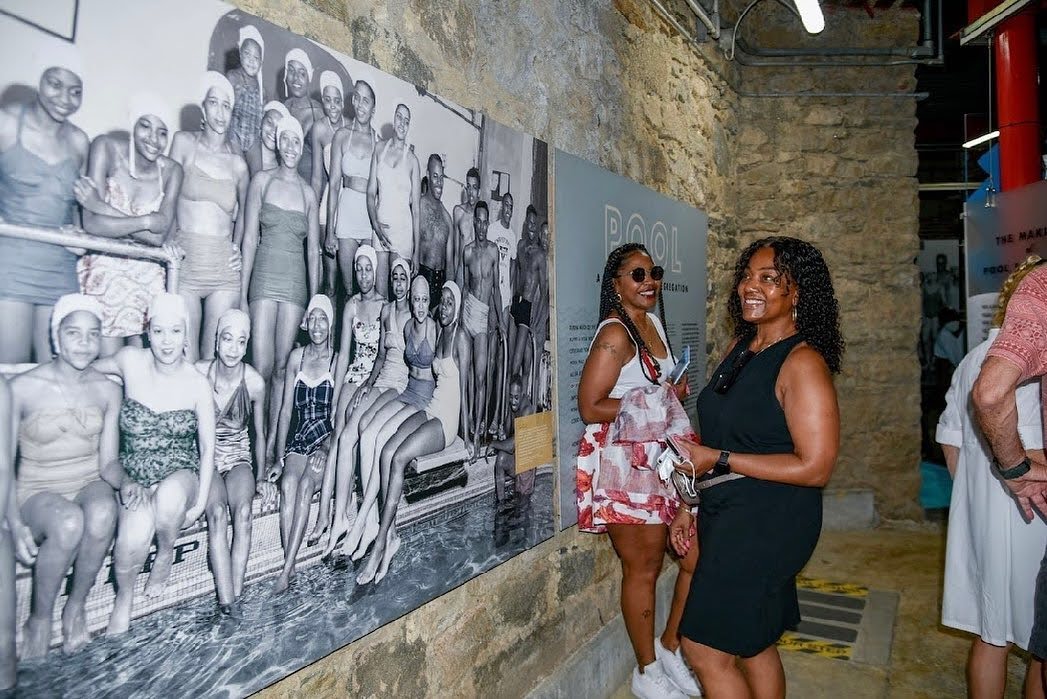
SPLASH/CONCESSIONS
During the summer of 2022, FWWIC hosted bi-weekly concerts and culinary offerings, SPLASH/CONCESSIONS, curated by POOL artist Homer Jackson and Chef and social justice activist Valerie Erwin. Jackson is Executive Director at Philadelphia Jazz Project and talented interdisciplinary artist with a background in curation, teaching and social service. Erwin is a master chef of Great Migration culture and cuisine and who, for 12 years owned the critically acclaimed Geechee Girl Rice Café in the Germantown neighborhood of Philadelphia. SPLASH/CONCESSIONS featured performances by local musicians with food prepared by young, local entrepreneurs of color. These popular events were designed to expand the experience, prolong the discussion and re-ignite interest in the POOL exhibition.
Art in the Open 2022 (May 20-22, 2022)
FWW partnered with the Center for Emerging Visual Artists for the XX year of Art in the Open (AiO), a biennial citywide event that celebrates artists, their inspirations, and their relationships with the urban environment. 2022’s event welcomed hundreds of participating artists, volunteers, and visitors along the Schuylkill Trail.
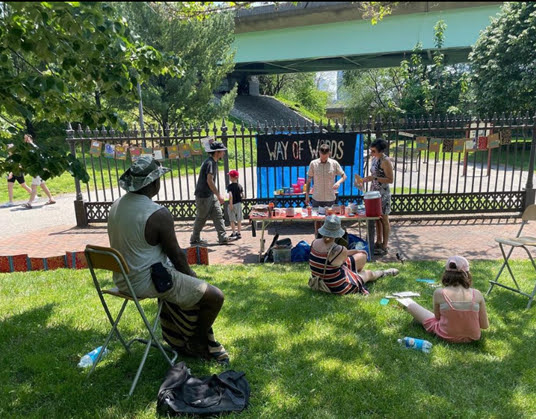
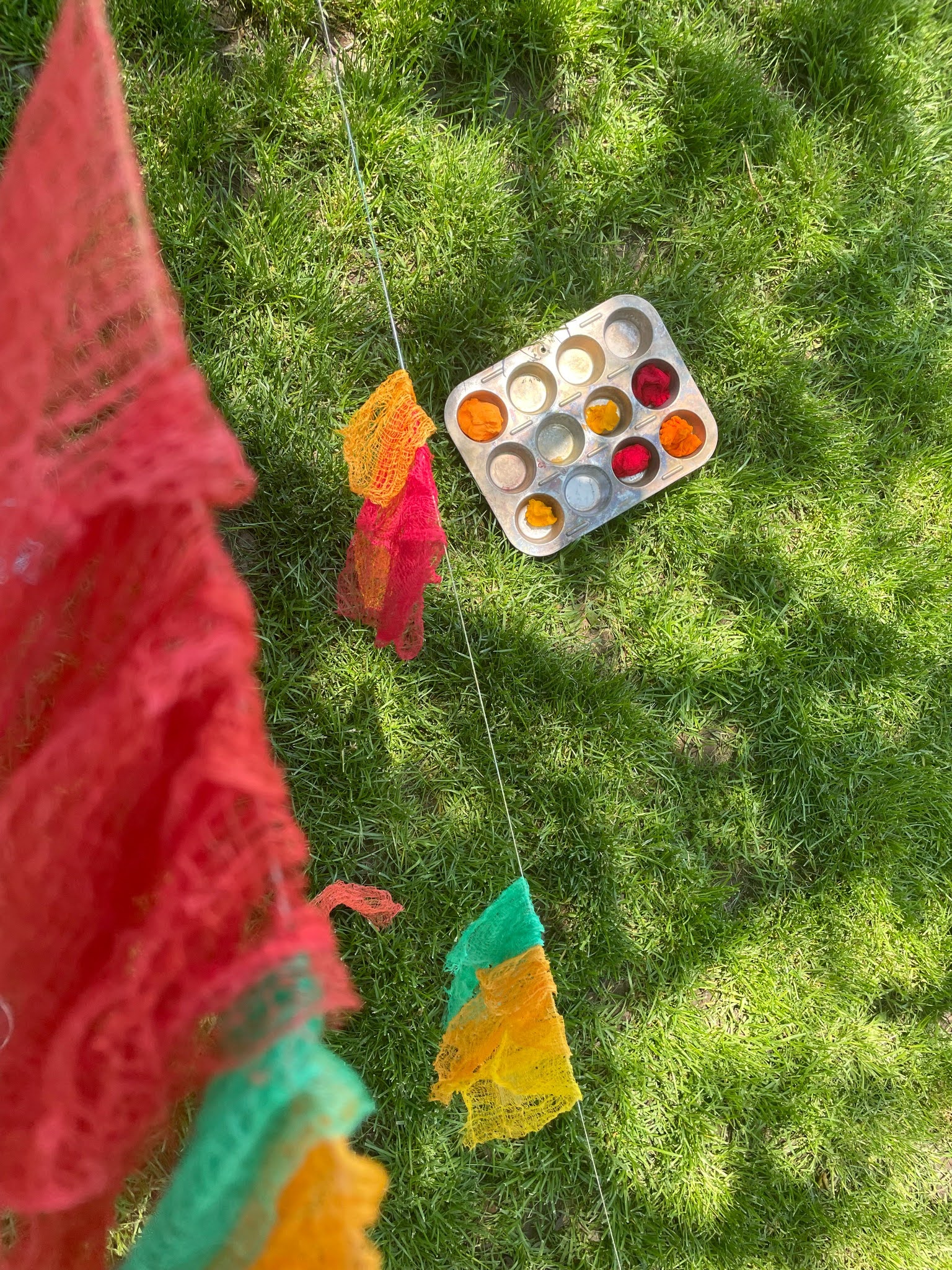
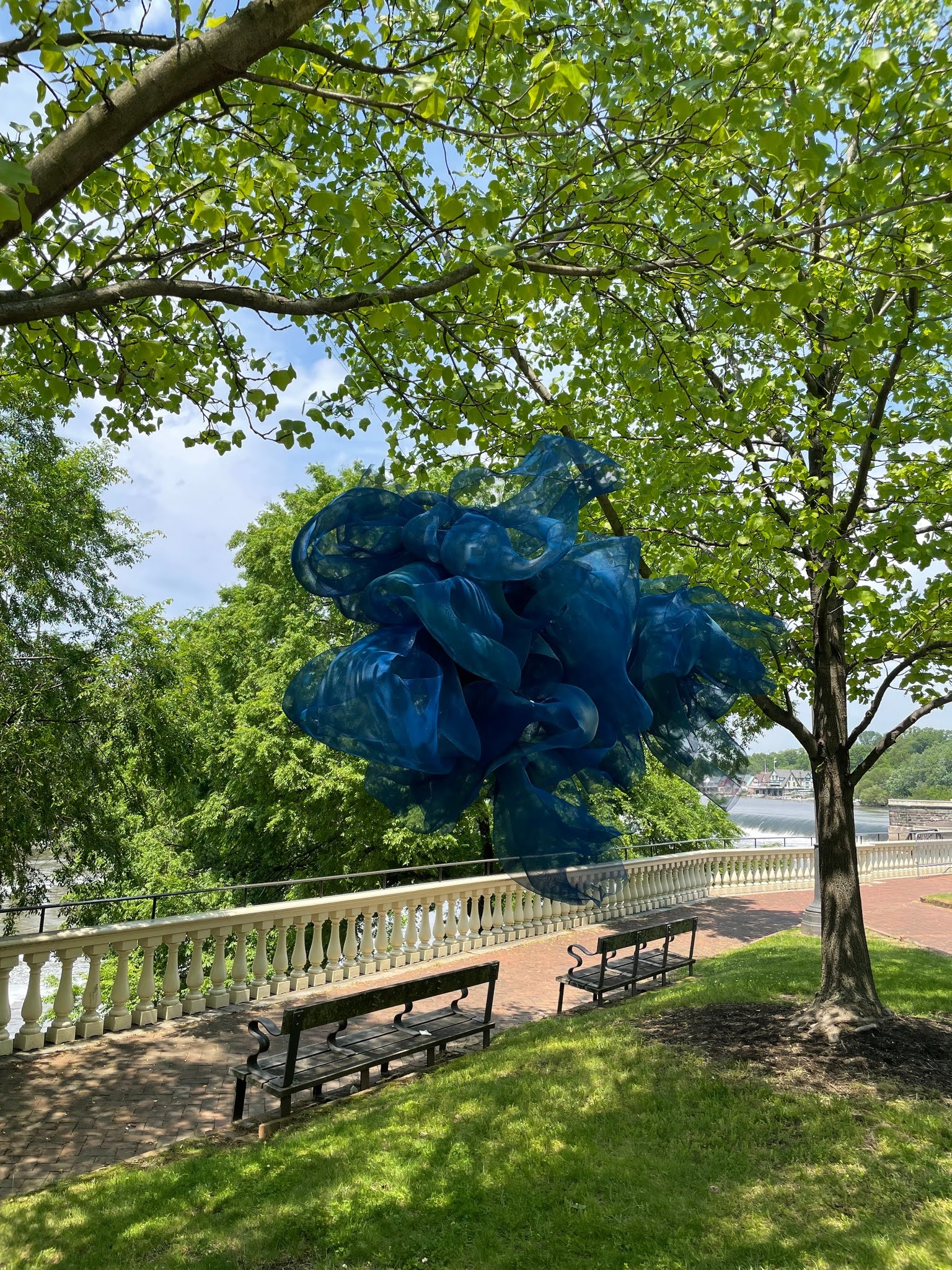
“Inland: The Abandoned Canals of the Schuylkill Navigation” Exhibition
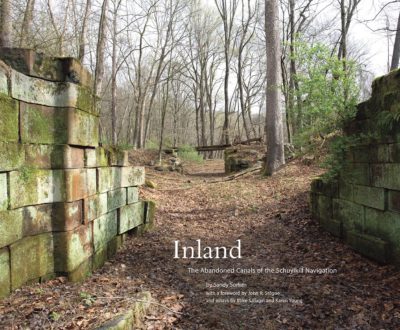
With FWW educator Sandy Sorlien as a contributor, the FWW supported the research of the book, “Inland: The Abandoned Canals of the Schuylkill Navigation”, which is composed of photos, maps, and essays about the historic Schuylkill Navigation System and its mostly-hidden ruins. Prints and maps from the book are on view in the media gallery at the Fairmount Water Works from October 2022 through February 2023, and celebrated its opening with a private reception.
“Ripple Effect” – Ed Grusheski Memorial Exhibition
Long-time supporter and friend to the Fairmount Water Works, the late Ed Grusheski promoted education of the history of our relationship with water and how the Fairmount Water Works came to be. To celebrate his legacy, the Interpretive Center partnered with artist Thom Duffy to launch “Ripple Effect: Ed Grusheski Memorial Exhibition”, featuring 13 local artists and pieces from Ed’s personal art collection. Personal guided tours were provided to the general public during the Center’s normal operating hours.
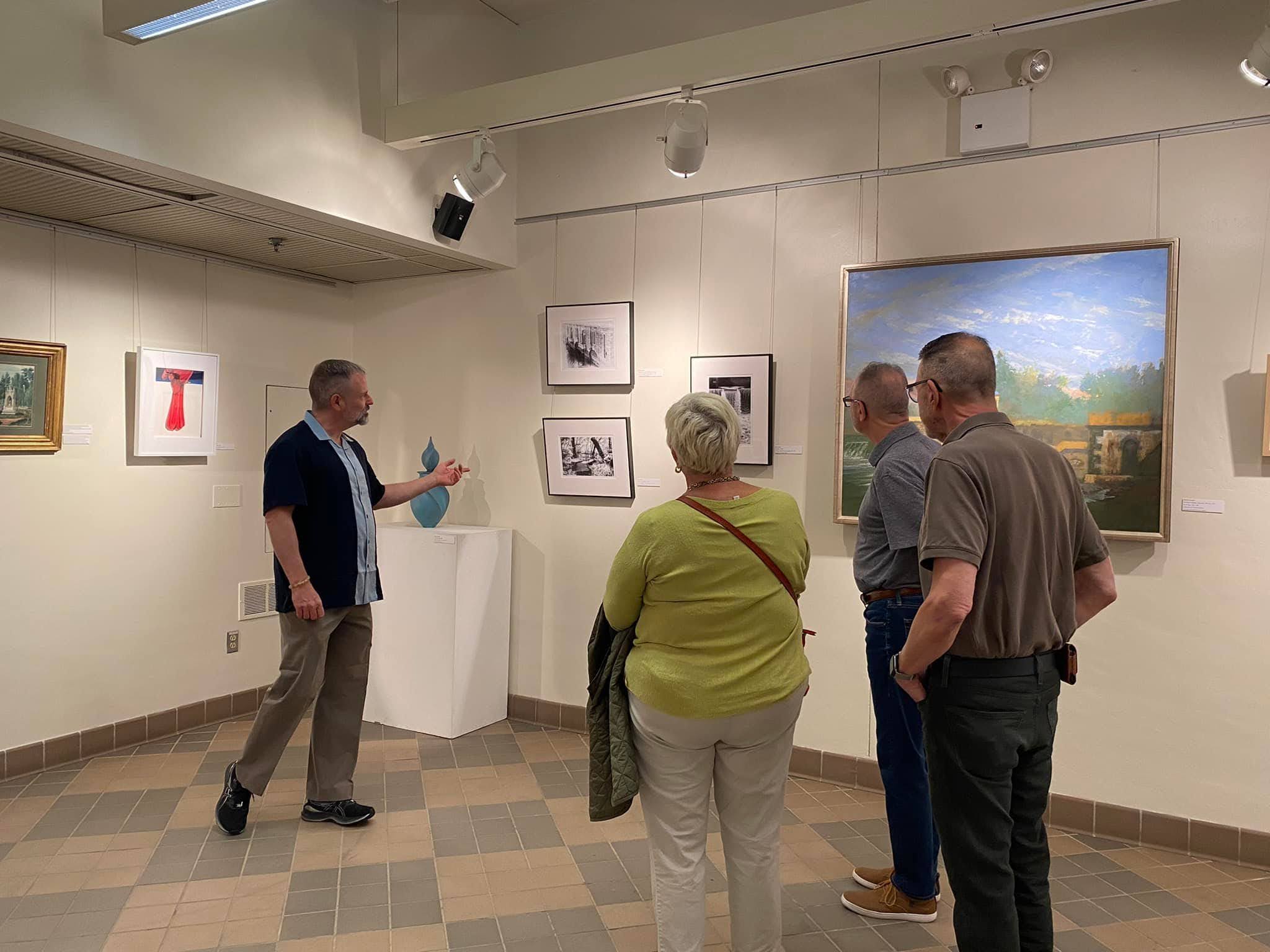
Freshwater Mussel Hatchery
FRESHWATER was a public art installation by artist Jean Shin and curated by Philadelphia Contemporary. Freshwater mussels propagated in the FWW Mussel Hatchery were used in a public fountain display to illuminate the role of freshwater mussels in improving water quality and to inspire viewers to become better stewards of our rivers. FWW’s education team and interns cared for the mussels used in the exhibit on a weekly basis, and participated in “Freshwater Talks: Mussel Restoration Along the Delaware River Watershed”, a panel of scientists, educators and culture workers involved in freshwater mussel restoration projects.
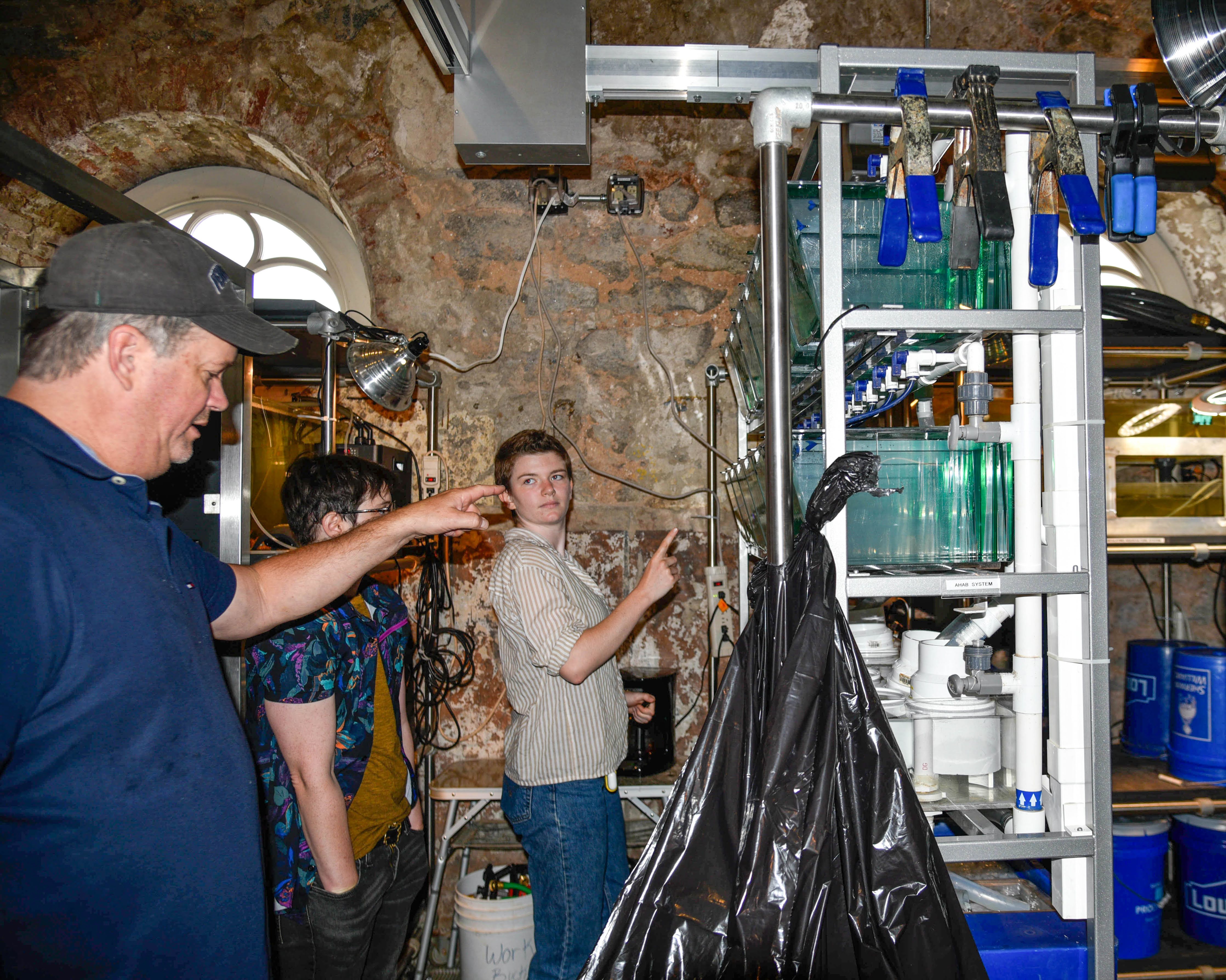
Mussels in the Classroom
This pilot program, initiated in the fall of 2022 at Lankenau High School is the result of a collaboration between FWWIC and ARRC scientists. Students apply knowledge gained in the classroom (ecology, mathematics and engineering) to a real-world research experience on a local environmental issue – water quality. Students received juvenile mussels propagated in the FWW Hatchery and a Recirculating Aquaculture System (RAS) and will monitor species-specific growth rates and survivorship. All data will be submitted to the ARRC research team.
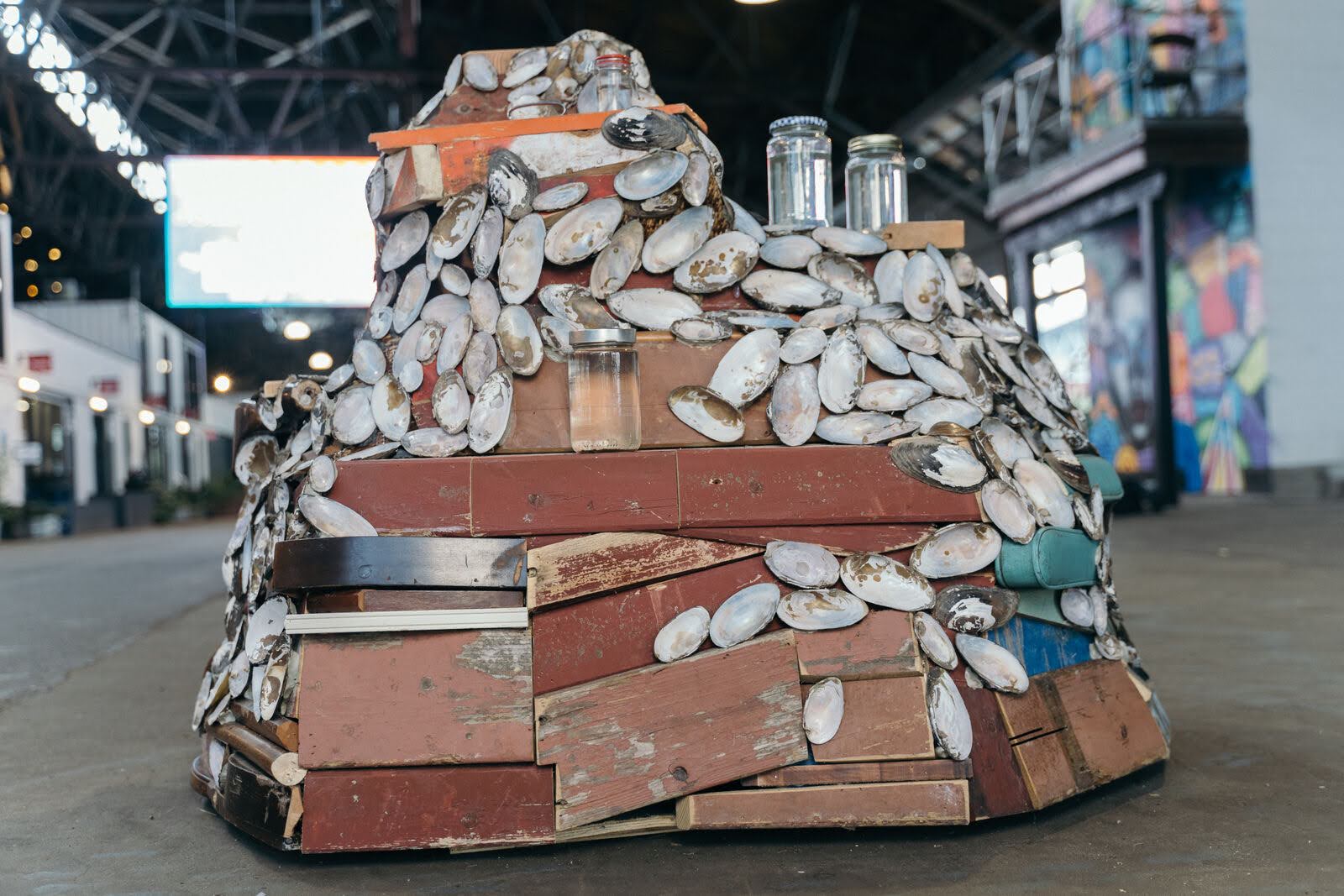
Mussel Maniacs
Mussel Maniacs community science experience, started in Fall 2021, is designed for all ages – adults and families.
With support from an Alliance for Watershed Education (AWE) regrant received in 2020, FWW partnered with Audubon at the Discovery Center to offer Mussel Maniacs (MM), a community science program, started in Fall of 2021. (MM is offered as part of Discovery Days, a signature monthly event at the Discovery Center from March through December.) Participants in MM include Master Watershed Stewards, Master Naturalists, groups of students from local universities, and families from the nearby neighborhoods. Participation each month has ranged from 6 to 32 people, with average of about 13 each program for an estimated total of 230 participants to date. Since we have about 20,000 new juvenile mussels propagated in 2022, we are interested in growing participation in MM, especially from people in local neighborhoods. Determining growth rates and survivorship of these new mussels will help to inform future propagation practices and deployment plans. We hope to build/strengthen relationships with leaders from local community organizations and with continued support from AWE, we will provide transportation for groups to attend community science events. We have found that learning about freshwater mussels and collecting this type of data can be a “gateway” into fostering care and concern for waterways in our city.
Mussels in the Field
FWW’s Mussels in the Field program is similar to the Mussel Maniac program activity, but designed for 6th-12th grade students coming as a class. Students receive a brief introduction to freshwater mussels and their propagation and use a Freshwater Mussel Journal to record site observations, draw maps, and collect data. Students measure the freshwater mussels and test the reservoir water for dissolved oxygen, phosphates, nitrates and pH. Students can learn about data analysis and complete graphs in their journals as well. We hope to grow this program in Spring of 2023 and will use some of the regrant funds to provide transportation for interested schools.
Once FWW Hatchery juvenile mussels are about 5 mm in length, they are moved to natural waterways in contained systems so that they can continue to be monitored – growth rates and survivorship. MIF gives students an opportunity to engage in a field research experience in which they measure mussel length, monitor survivorship and take physical and chemical measurements of the aquatic system. Nearly 1,000 students have participated in this field experience since fall 2019.
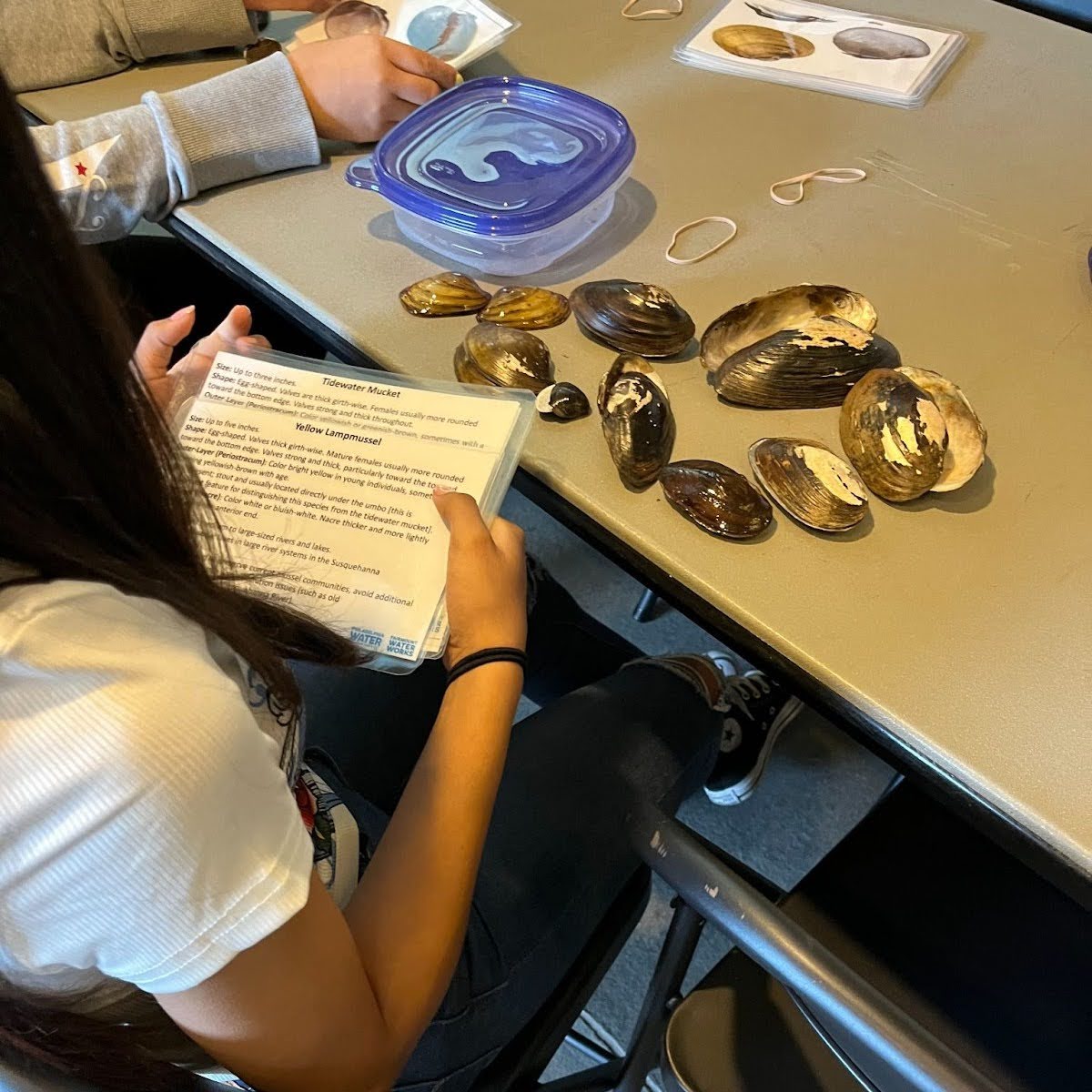
Mussels-To-Go, traveling mussel kit
For classrooms that are unable to take field trips, we have started to design and create a traveling Mussel Kit, in which teachers can sign out and use in their classrooms for a period of time. The kit will contain a series of hands-on, student-centered activities designed for 6th-12th graders. Current activities include matching mussel shells and learning about species id, life cycle puzzles, equipment to test turbidity of water samples, and research simulation activities to illustrate the propagation process. The kits will also include vocabulary lists, data analysis activities and comprehension questions. The AWE regrant will help to support the development of activities in the kit and staff time to pilot the kit in classrooms.
Aquatic Research & Restoration Center (AARC)
In 2022, activities have been far-reaching, despite the impacts from flooding and interruptions from the COVID pandemic. These include:
- Successful propagation of five (5) species of native bivalves (over 25,000+ individuals) at FWW’s Freshwater Mussel Hatchery.
- Propagation of two species of native mussels using in-vitro techniques.
- The creation of Pennsylvania’s first and only Shell Recycling Facility for the purposes of beneficial use of recycled material for the Delaware Basin’s Oyster Reef Recovery Program and the Delaware Living Shorelines Initiative (DELSI).
- The design and implementation of Pennsylvania’s first Living Shorelines Project located along the west bank of Schuylkill River at Bartram’s Garden, Philadelphia.
- Design of a production-scale freshwater mussel hatchery at Bartram’s Garden.
- Revisiting and revision of the ARRC Memorandum of Understanding in 2022 to address four core natural resources: Freshwater Mussels; American Shad and River Herring; Nearshore Habitat; and Oyster Shell Recycling.
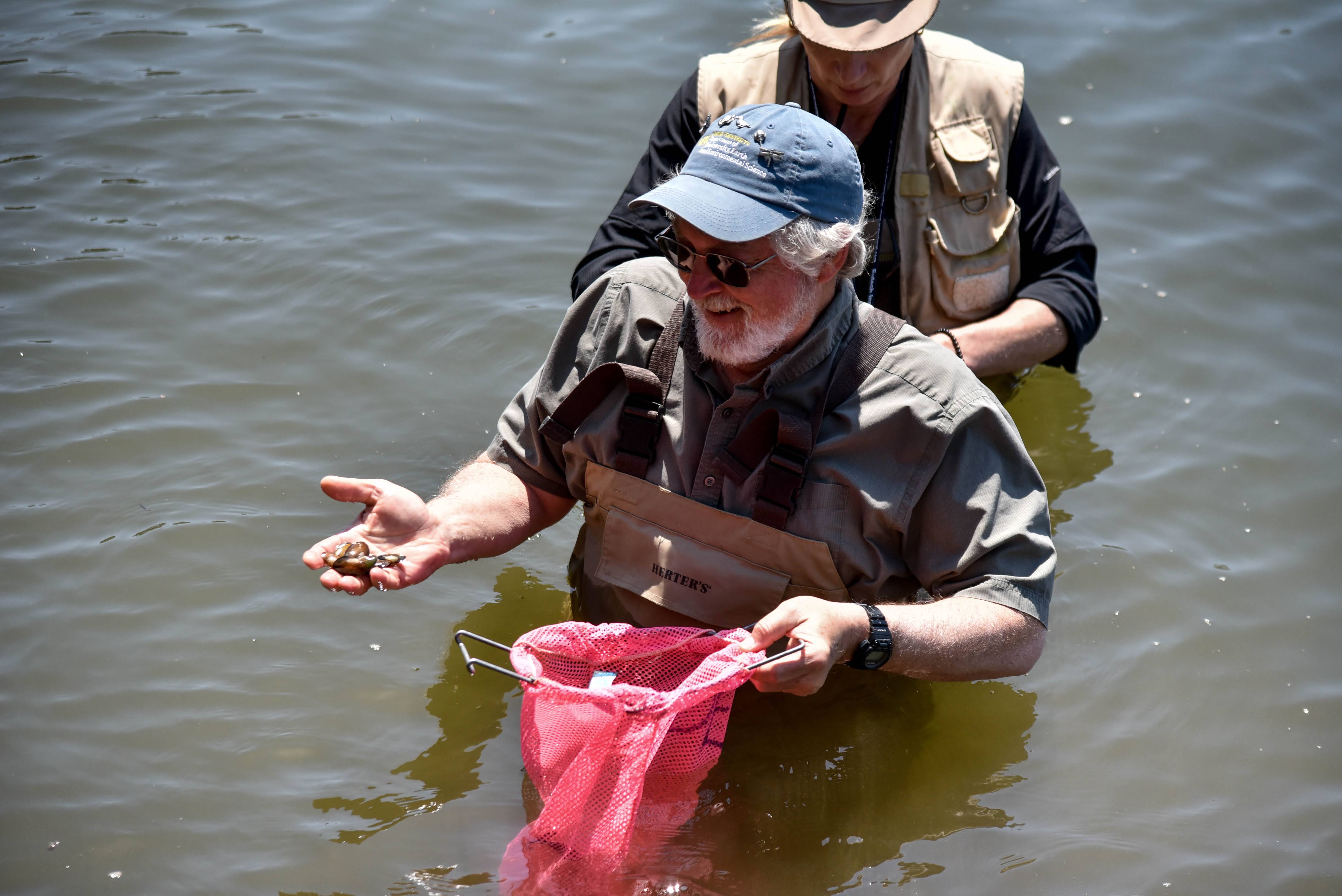
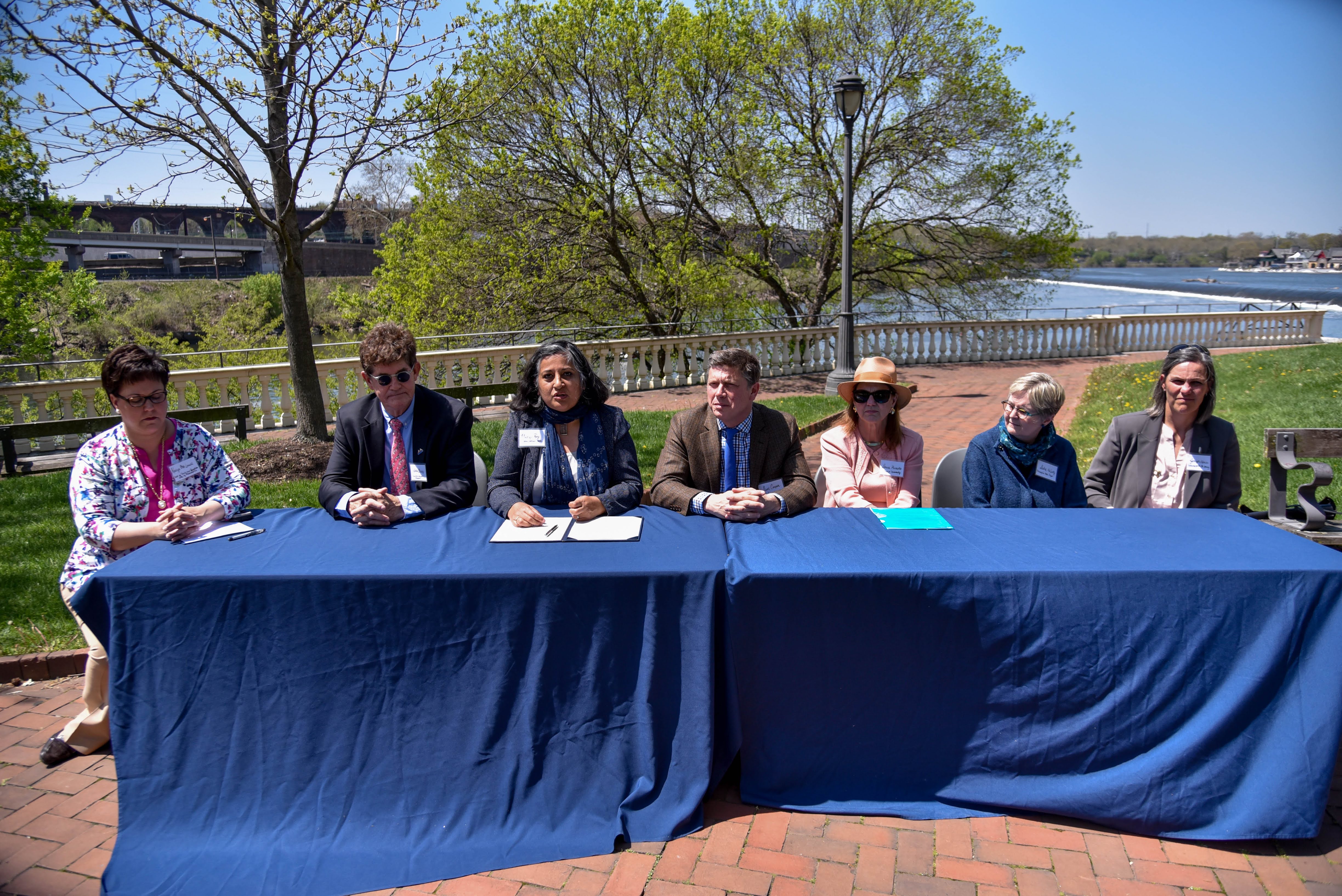
Watershed is an Open Book
The Fairmount Water Works continued its work with this literacy program, hosting weekly workshops in the surrounding community to build reading readiness using “teachable” moments in the surrounding neighborhood. Participating children and their families received great incentives for frequent attendance, such as books to build home libraries. Seasonal attendance is as follows: 69 families and 133 children (fall 2021); 69 families and 165 children (spring 2022); and 69 families and 110 children (winter 2022). These numbers do not reflect repeated families/children from week to week.
Partnership with the Alliance for Watershed Education
As a proud member of the Alliance for Watershed Education of the Delaware River (AWE), the Fairmount Water Works participated in its annual River Days events and Fellowship programming since its inception.
The River Days series is a multimedia event that brings together artists, thought-leaders, and environmental justice advocates for groundbreaking conversations about climate change, land reclamation, water quality, and how it all converges in the Philadelphia region and beyond. There are hiking, biking, paddling, and many more activities offered to fit every age group and interest. As a member of AWE, FWW shares a mission to collectively increase and enhance constituent appreciation and stewardship of the watershed. AWE is funded by The William Penn Foundation.
The Fellowship programming is designed to encourage and teach young men and women who participate in a paid Watershed Fellowship at one of the 23 environmental education centers that make up the Alliance for Watershed Education, including the Fairmount Water Works. The Watershed Fellowship is a unique career building opportunity for its participants, that requires no specific educational prerequisites. Through 12 weeks of focused conservation projects – including community outreach, research, educational programs, and more – the Fellows are able to break into the environmental field and grow awareness of the watershed’s value. Through hands-on experience and connection with local communities, each Fellow gains valuable “green-collar” work experience and a deeper understanding and appreciation for issues facing the Schuylkill River and the Delaware River watershed – the source for clean drinking water for 15 million people.
Education & Outreach
Virtual Learning Experiences
For the 2020-2021 school year, FWW created a number of virtual learning experiences including three remote programs for grades 3-12 (Urban Watershed Basics, History of Philadelphia’s Water Supply and Freshwater Mussel Research at FWW), presentations about the city’s three water treatment plants, and three programs for pre-k through 3rd grade (Seeds Move!, Rivers Flow, and Ponds Are Alive!). Each early elementary program was about 20 minutes long and included a pre-recorded reading of a delightful children’s book, followed by an art-based activity.
Summer Programs
In general, groups were not taking field trips during summer 2021, so the FWW team created: Water Works to Go, a program designed for Philadelphia Parks & Recreation summer camps. Nearly 400 campers were introduced to some of the parameters scientists check when assessing water quality of a river. We also offered Watershed Wednesdays, a program open to the public. The Meet the Mighty Mussel program in the summer of 2022 allowed students to understand the role freshwater mussels play in aquatic ecosystems through games, interactive play, and scavenger hunts.
The second year of the SPLASH: Summer Family Literacy Program , although held in the extreme summer heat during the COVID pandemic, was more successful than its first yea, reaching a total of 79 children and 40 families. For the four-week series of family literacy programs with an environmental theme focused on water, water systems and watershed understanding, FWW worked with community partners Tree House Books and the School District of Philadelphia’s Office of Early Childhood Education. Using the unique vistas and park setting that is part of the Fairmount Water Works site, the summer pod program series included exploration and discovery through books, scavenger hunts and various facilitated creative engagement activities. Participating families received take-home activity kits (including a book and art/craft materials) designed to complement each session’s environmental theme with focused caregiver tips to help families grow a life-long love of literacy and the environment in new settings. The program was funded by the William Penn Foundation.
Future Watershed Steward Program
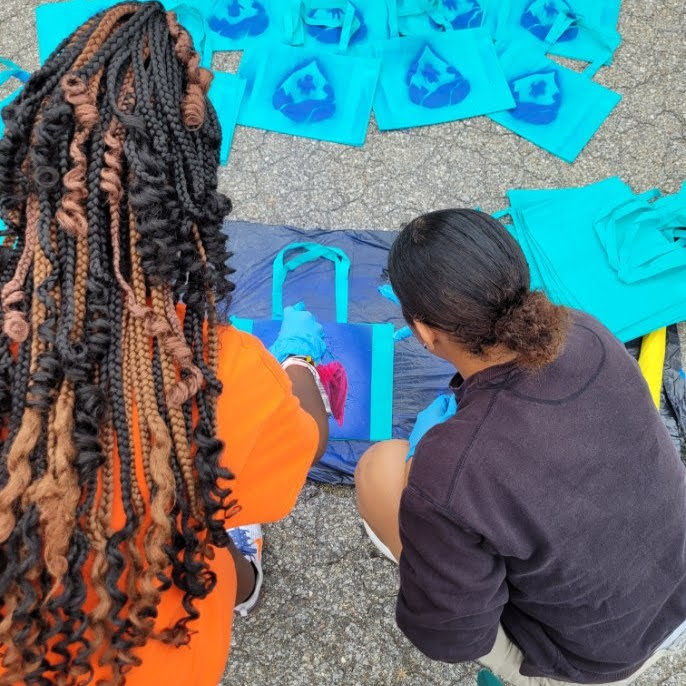
Funded by North American Association for Environmental Education (NAAEE), the National Oceanic and Atmospheric Administration (NOAA), and the U.S. Department of Education, FWW partnered with the Council of Spanish-Speaking Organizations of Philadelphia (Concilio) to offer 150 middle- and high-school students a multi-day experience in the field exploring our city’s rivers over 2 years from September 2020 through September 2022. Students learned how to assess the health of our waterways using physical, chemical and biological methods, engaged in ongoing freshwater mussel research projects and participated in stewardship projects within their community.
Schuylkill Acts & Impacts
During this 6-day watershed expedition along the 120-miles of the Schuylkill River, FWW educators engaged high-school students in learning about the impact of land-use on water quality through service-learning experiences, guided tours, fieldwork, water sampling and interactive discussions with experts in the field.

Internships & Co-Ops
High school students in local schools often ask to complete their senior project with the Fairmount Water Works. FWW has been able to offer educational work experiences to Drexel Co-op students and fellows through the Alliance for Watershed Education Fellowship program. These students assist in delivering our education programs, engage in projects creating education materials, and help with various administrative tasks throughout the school year and summer months.
Exploring the Urban Watershed Curriculum & Activity Guide
FWW’s signature curriculum, implemented in partnership with the School District of Philadelphia, is designed as place-based, hands-on, and minds-in for students to increase knowledge about their local watershed and water system infrastructure, in order to grow their understanding of issues and take action for a more equitable and sustainable future for themselves. The curriculum provides an opportunity for classroom educators to connect their students to one of the most fundamental elements in all living things – water, and to help them understand their role and responsibility to protect this shared resource. For the 2022-2023 school year 24 district schools, 41 teachers, and approximately 1634 students were reached.
“Think Outside the Box” Kits
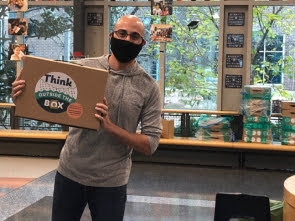
In 2020, in response to the shift from in-person to virtual learning due to COVID-19, the Fairmount Water Works expanded its award-winning Understanding the Urban Watershed Curriculum with more than 800 hundred hands-on, take-home kits cleverly called “Think Outside The Box”. The kits help teachers respond to the need to shift to virtual classrooms from full-time in-person learning due to Covid-19, and inspire opportunities for outdoor exploration and observation.
Social-Emotional Learning & Nature
What began as 13 activities for early elementary students turned into a comprehensive teacher’s guide to using nature as a tool for social-emotional learning in and out of the classroom.
Author Collaboration
FWW partnered with the School District of Philadelphia, visiting 8 of its Watershed Curriculum schools with Chantal Bright, author of JanJay, a book about a young pre-teen in Liberia and her adventures and family responsibilities related to water. The District purchased 418 books as class sets, and the meet the author presentation reached about 800 students.
Schoolyard Sensor Project
In November 2022 the Fund for the Water Works received a grant from SPARK Therapeutics for the Schoolyard Sensor Project. In partnership with the School District of Philadelphia, this funding will test and install weather, heat index, and air quality monitors in up to five West Philadelphia schools, develop curriculum mini-unit for middle grades 5 and 6 and develop a user-friendly dashboard and interface for students.
Off-Site Tours & Activities Along the Watershed
Hosted 8 outdoor on-site tours of historic ruins and sites along the Schuylkill River Trail and Schuylkill Navigation in all five counties of the Schuylkill: Philadelphia, Montgomery, Chester, Berks, and Schuylkill. Attendance for these tours was usually 10-12 people, including historians, trail advocates, tour guides, photographers, water quality experts, and local landowners.To offer safe activities during the COVID-19 pandemic FWW educator Sandy Sorlien:
- designed and led a tour for 18 teachers at Flat Rock, and a tour for 25 Athenaeum members at the FWW in 2022. FWW maintained and added geocaches, placed at several sites along the Schuylkill River Trail.
- Facilitated two new Adventure Labs (Venice Island and Valley Forge). These are adventures that people can do on-site with their phones. Water quality issues, canal history, and river cleanup history are discussed on the app at both sites. Approximately 100 people have reported and reviewed our Adventure Labs on the app during the 2021-2022 program year.
Created and managed a lively Facebook group called Schuylkill Navigation. It started in 2021 and has grown to 550 members. Facilitated topics include the river, canals, historic structures, water quality, boating, and trails.
National Media Coverage
FWWIC and the exhibition “Pool: A Social History of Segregation” were spotlit in numerous local regional and national media sotries. Here are links to a few:
- The Guardian A new exhibition highlights a shameful history of racism in pools but also a recognition of Black swimming heroes
- Fast Company A new exhibition portrays the lasting effects of segregated swimming pools in America.
- WHYY/PBS Pool: A Social History of Segregation – Movers & Makers (2022)
- Broadway World POOL: A SOCIAL HISTORY OF SEGREGATION Honored With Awards And An Emmy Nomination
- USA Today Teaching Black children to swim heals generational trauma and saves lives, experts say
